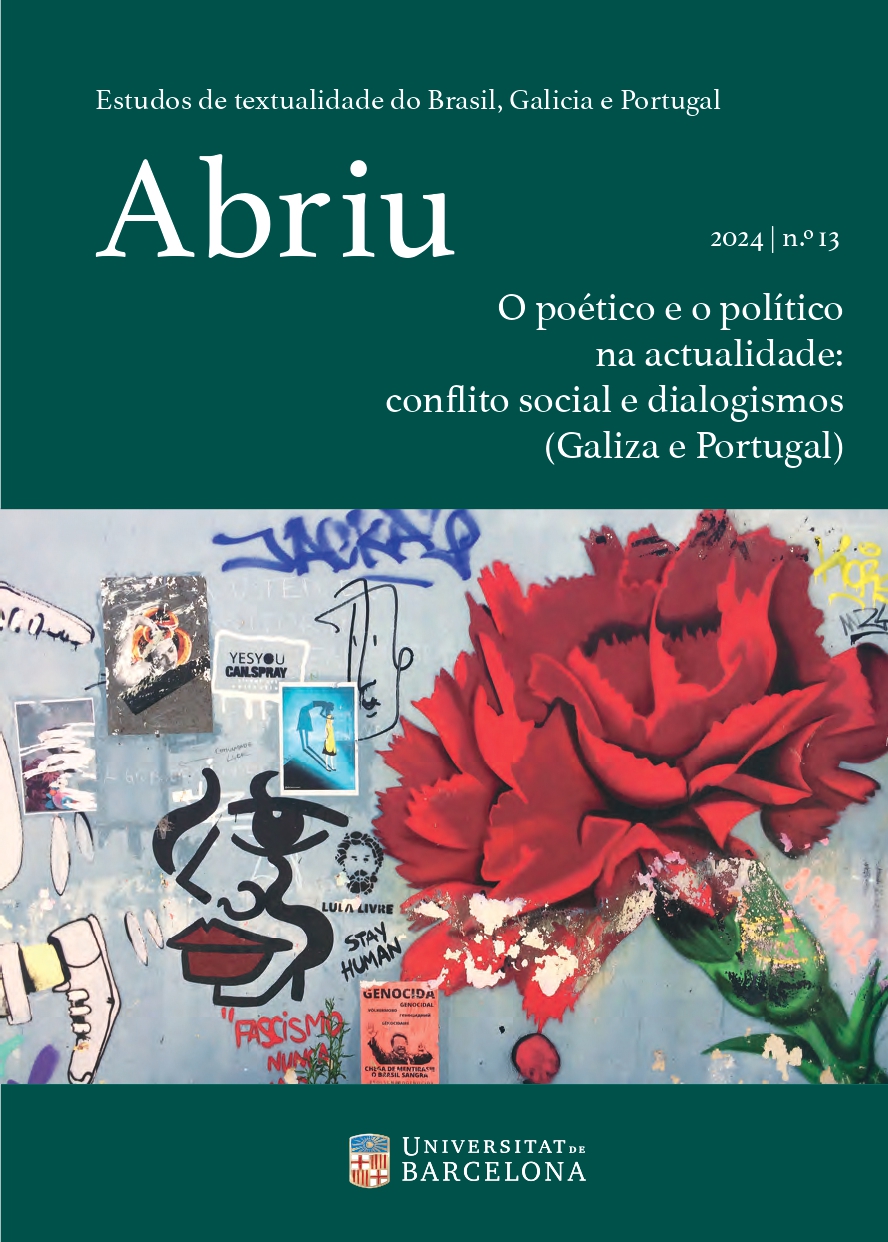Opening up the field. Cultural Flows in Galician and Portuguese
The awareness of a common past turns the border between Galicia and Portugal into a space of encounter and reflection, a labile space charged with meanings where contact between cultural systems is often resolved in an experience of recognition and self-knowledge. But the barrier that establishes distances in the political and administrative field is also imposed in the areas of communication and culture because the market and the institutions that facilitate the circulation of cultural products follow structures determinated by the borders of the State.
In this monograph we call for an exploration of the cultural experiences that arise with the aim of establishing links beyond this reality, which generates layers of impermeability between communities even though they have a language and a very close socio-economic reality. How do linguistic differences affect them and what is the role of translation? How is mutual interest manifested in the cultural press? How are territorial and linguistic peculiarities represented in creative works on both sides of the border? What strategies are used by culture to build community or mark otherness? How is the border represented and what consequences does it have in literary system?
The relations between Portuguese-speaking cultures and Galicia was explored at the XIV International Congress of the International Association of Galician Studies Horizontes dos Estudos Galegos e/na Lusofonia (UMinho, April 2024) from different disciplines. Based on this experience as a sourse of reflection, the editors of this issue invite contributions of original works that explore this theme from the fields of translation, cultural press, literature and other artistic manifestations that offer the possibility of testing or questioning the border devices with which the world is organised and represented.
This monographic issue will be combined with texts that are published in the miscellaneous section and which can deal with any subject.
Articles can be written in Galician, Portuguese, Catalan, Spanish or English and must conform to the journal's editorial guidelines. Submissions will be subject to blind peer review and can only be submitted through the Abriu website (https://revistes.ub.edu/index.php/Abriu/index). The deadline for submissions is November 15, 2024. The monograph Opening up the field. Cultural Flows in Galican and Portuguese is coordinated by María Alonso (Universidade de Santiago de Compostela) and María Xesús Lama (Universitat de Barcelona). It will be published in issue 14 (2025) of Abriu.
Read more about Opening up the field. Cultural Flows in Galician and Portuguese


